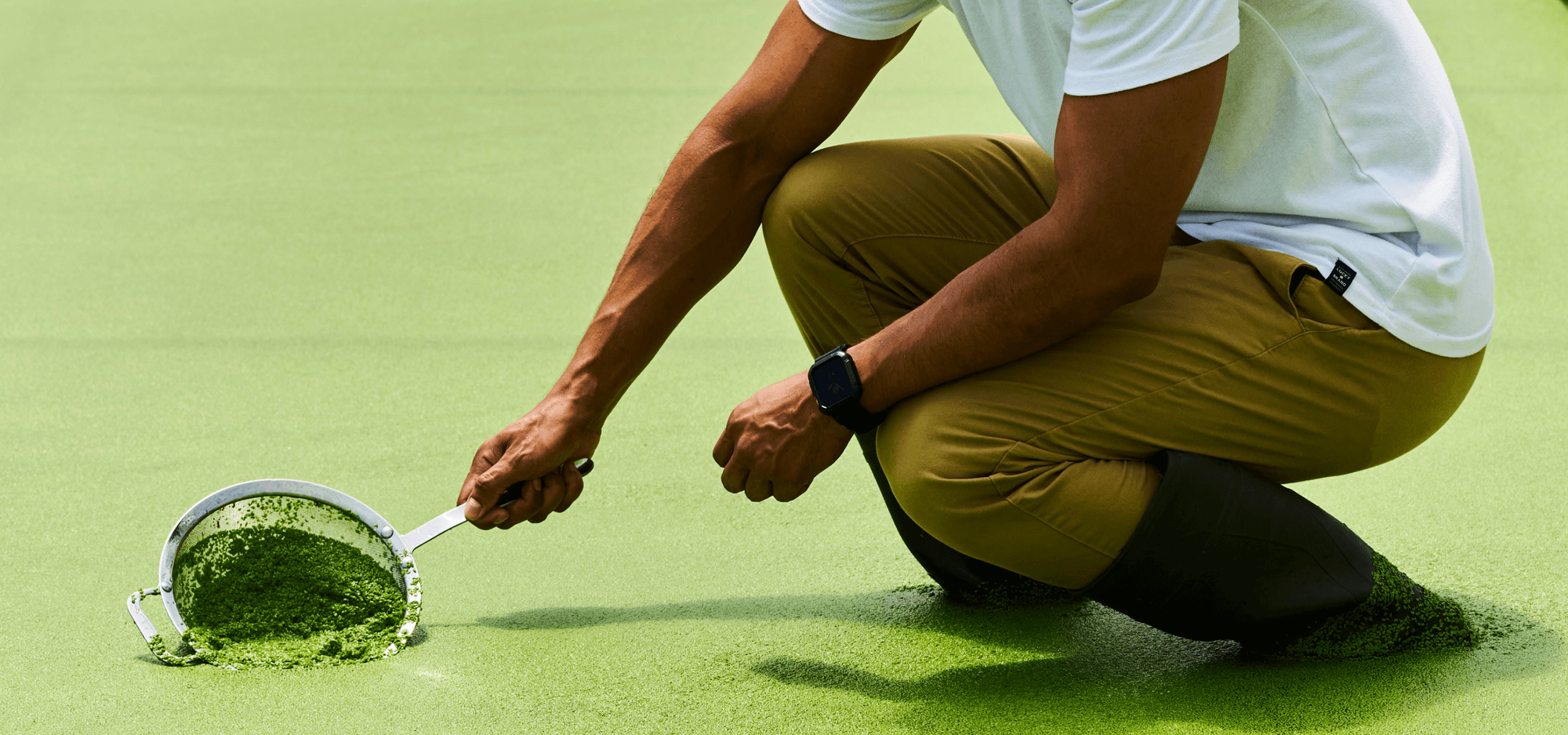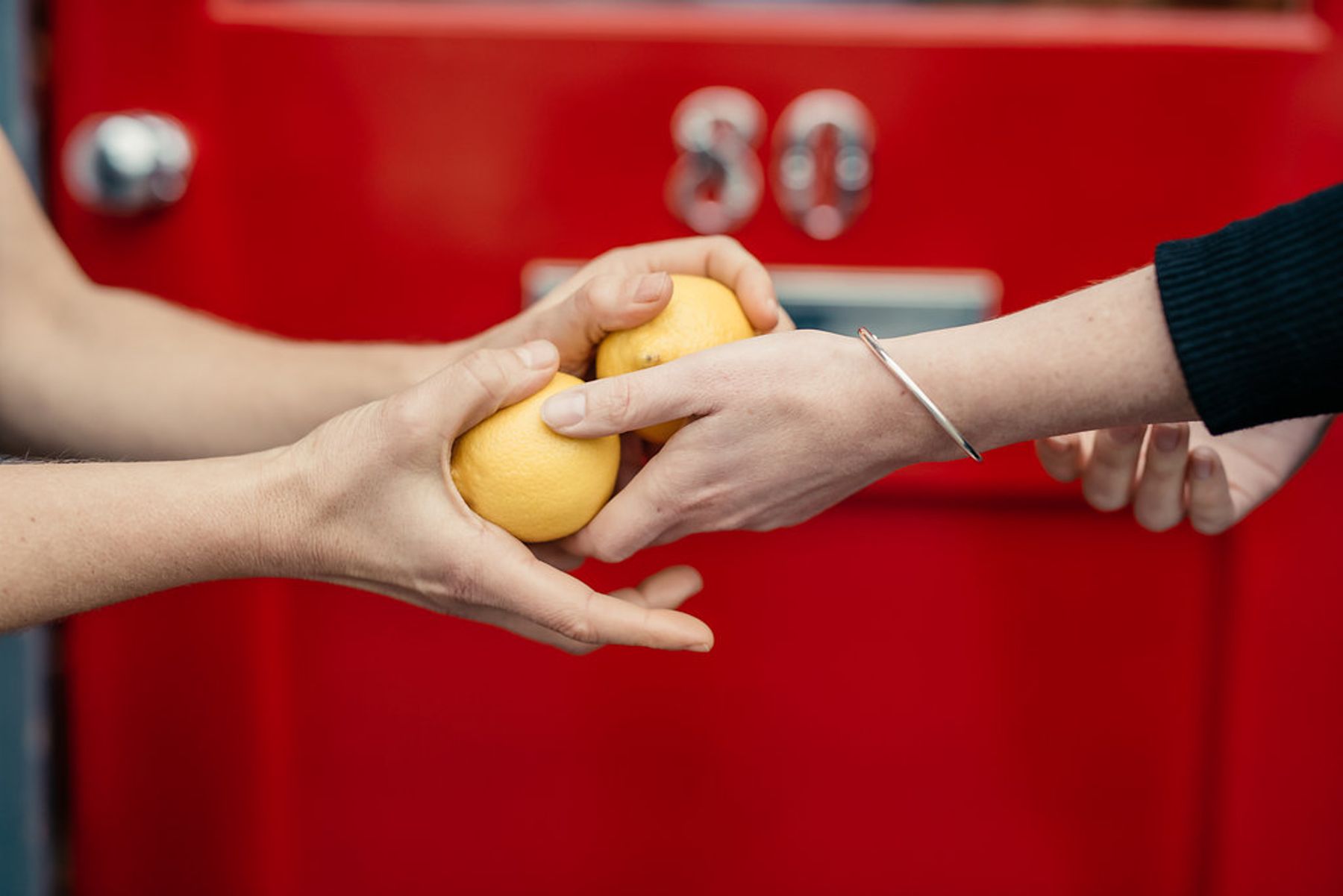The food industry needs more than photos of farmers in fields, if it wants to embrace a sustainable future. We asked AUFI client Tony Martens, founder of ag-tech startup PLANTIBLE, why branding is critical for new food companies to invest in.
In the world of science fiction, there’s no shortage of narratives around the future of food. Arthur C Clarke wrote about it in his 1957 novel The Deep Range, which shows humanity living off the seas, farming whales and harvesting vast plankton farms; in survival video game Oxygen Not Included, the tiny humans in your base live off ‘nutrient paste’; and in the original series of Star Trek, crew members subsist on brightly coloured cubes.
There’s one big problem with all of that, and it’s that none of it’s very enticing - particularly in a world where humans are still wedded to long-held food traditions. As Tony Martens, AUFI client and co-founder of food and ag-tech startup Plantible says: “We’re still growing the same crops we did 2,000 years ago; nothing has changed, and I don’t think there’s any other industry where we’re still using the same product as we did 2,000 years ago except for food. Our decision criteria back then were: is it easy to grow? Can we harvest it? And does it kill us?
The AUFI Connection: We introduced Plantible to creative studio Some Days, for foundational brand design, messaging and packaging.



“60% of our global calorific intake comes from four crops: corn, soy, wheat and rice. It’s like the world has put 60% of global GDP in four stocks.”
Tony Martens – AUFI client and founder of ag-tech startup PLANTIBLE
“60% of our global calorific intake comes from four crops: corn, soy, wheat and rice. It’s like the world has put 60% of global GDP in four stocks, which generate revenue one day a year. That doesn’t seem like a sound financial decision … you start to realise how fragile our overall food system really is, how overly centralised it’s become, how prone it is to very simple disruptions, and how stagnant our world has been when it comes to developing and growing food crops.”
Martens, a former commodities trader, is trying to change that with Plantible, which has ambitions to do no less than create a new agricultural supply chain that reduces greenhouse gas emissions, and helps the food industry transition to a more sustainable, nutritious and delicious system.



How does Martens and fellow co-founder Maurits van de Ven plan on doing this? The answer lies in Lemna – a tiny, rapidly growing aquatic plant that doubles its mass every 48 hours, can be grown throughout the year in a variety of different climates, and has a water footprint that’s ten times lower than that of soybeans. From the Lemna grown in its aqua farms, Plantible extracts what it calls Rubi Protein – an enzyme, also known as RuBisCO, that’s a catalyst in the photosynthesis process. It’s contained in vegetables such as kale or spinach and is nutritionally superior to animal protein. Rubi Protein can be used to make foams, gels or emulsions, meaning Plantible can create toolkits for other food brands to incorporate into products – for example, replacing the liquid egg in baking mixes.
Newcomer food brands, or businesses offering these kinds of less familiar, more sustainable choices, have big challenges to face. There’s enormous appetite for plant-based alternatives – Plantible has just taken over 100 acres of a 40k-acre West Texas cattle farm that’s hoping to transition away from meat – but not only do they have to be as delicious as well-established competitors, they have to go up against years of investment in branding and marketing. They also have to overcome people’s natural suspicion about new kinds of foods. “I think consumers are becoming more and more aware of what they’re putting in their body,” says Martens.


“It’s super important that you can tell a clear and cohesive story that helps the consumer understand what this company is doing, how it’s being made and why it’s good for them.”
Tony Martens – AUFI client and founder of ag-tech startup PLANTIBLE
“There’s more access to information, which automatically means if you launch a new ingredient that can be found on the label, consumers are probably going to be like, ‘what is this?’, and go online, and come to your website. It’s super important that you can tell a clear and cohesive story that helps the consumer understand what this company is doing, how it’s being made and why it’s good for them.”
Martens believes that food brands also have to contend with people’s emotional attachment to the ‘normal’. “In the end, consumers have this artisan image of how food is produced – and that’s from many generations growing up with imagery of the farmer in the field, mowing and harvesting their corn and wheat,” he explains. “If you go to any food company website, it’s probably showing a farmer, standing in a field touching his weeds.
“The conversation we had with [our design and brand agency] Some Days was around how to make Plantible feel like artisan farming, and show people it’s just a crop, and not something that’s grown in a stainless steel bioreactor. That was really important, because it helps us better convey what we stand for, and why it matters, and that’s good for consumers. That’s why we initially got in touch with AUFI and started to work with Some Days. Good copy, good imagery and a well defined story should aid in transitioning consumers to a new food system.”
“It can’t just be science-y and innovation-based, because then you lose your connection to food and why we eat food, which is part of the challenge within some of the new brands in that space.”
Steve Reinmuth – founder of Some Days, part of AUFI’s creative agency network
“It needs to look and feel tasty,” agrees Steve Reinmuth, founder at Some Days, which is part of AUFI’s creative agency network. “It can’t just be science-y and innovation-based, because then you lose your connection to food and why we eat food, which is part of the challenge within some of the new brands in that space. There’s been pushback with some of them that feel lab-grown, and it almost feels like people are returning to meat because it’s at least natural and of the environment that we all know.
“It’s about making sure it feels purchasable, it feels buyable, and it feels like something you can take into your home and not something that’s too far away from the norm of the brands you purchase,” he continues. “It has to sit within your life and feel natural, and that’s one reason branding and messaging is really important. Things that are at the forefront, and feel a little bit novel, always need to over-communicate and tell their story with visuals, with copy, with narrative, to introduce people who they are in a way that existing legacy businesses don’t need to do as much. There’s a necessary de-stigmatisation of brands that are in a space consumers might be a little uncomfortable with, and brand plays a role in helping people along the path to understanding them.”


For a business like Plantible, the challenge isn’t just convincing consumers – it’s about winning over other businesses. While briefing Some Days, Plantible referenced waterproof brand Gore-Tex and the Intel Inside campaign as examples of the standard of B2B branding and messaging it wanted to achieve.
“The Intel Inside or Gore-Tex strategy is obviously great for consumer recognition, and approval quality, but it’s also great for the business,” explains Martens. It increases your enterprise value. Especially if you’re doing something novel, if you can become that quality stamp and have consumers go to your website and become familiar with what Plantible stands for, it’s great, because it also hopefully accelerates that adoption curve amongst consumers.”
“There’s so many aspects to food that make it such a hard industry to disrupt because it’s so personal and it’s so cultural.”
Tony Martens – AUFI client and founder of ag-tech startup PLANTIBLE
“The CPG companies that Plantible is talking to understand brand very well, and understand the food space very, very well,” adds Reinmuth. “If they’re talking to a company that gets it, the potential for partnership is exponential. Imagine talking to two possible partner brands that supply a similar product, and one clearly hasn’t considered their brand or their strategy, and are more transactional compared to a brand that’s really thought it through. They’re definitely going to lean towards working with the company that gets it.”
Plantible is still in the early stages of its long term plan, and Martens is as optimistic about the possibilities as he is cognizant of the unique challenge they face. “Food is tricky,” he tells AUFI. “There’s so many aspects to food that make it such a hard industry to disrupt because it’s so personal and it’s so cultural. I think that’s what has been the oversight of many investors in past years – the fact that it’s a generational change, not a three-year exit plan. It’s not like, ‘hey, we’re going to build this and three years from now be able to sell your company’. In order for it to get momentum it has to be a generational shift, and I think that’s what people want.”



